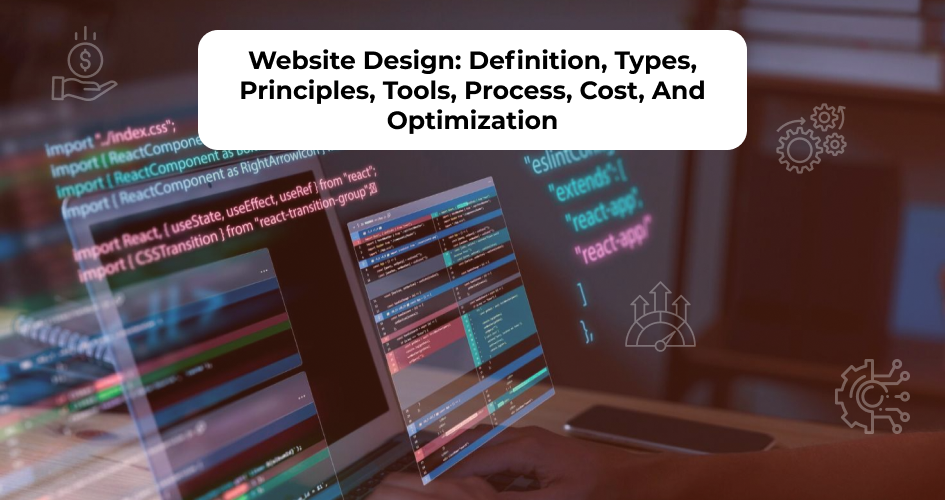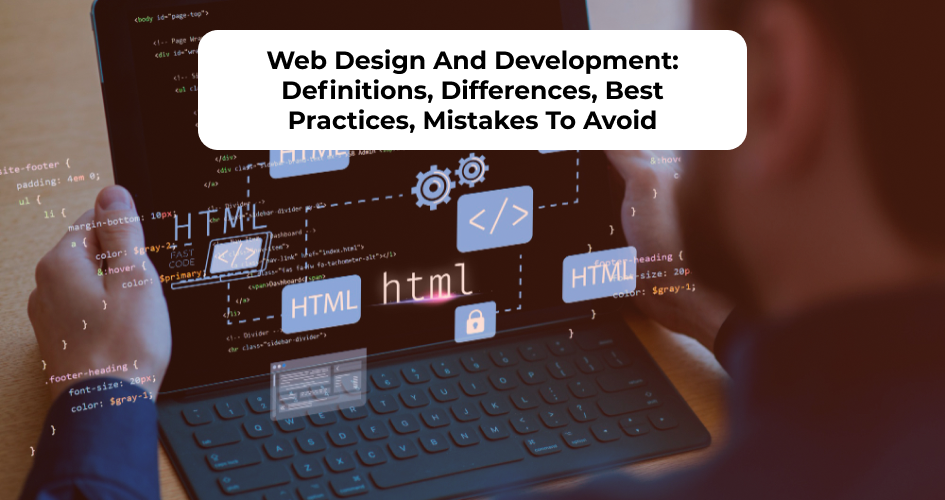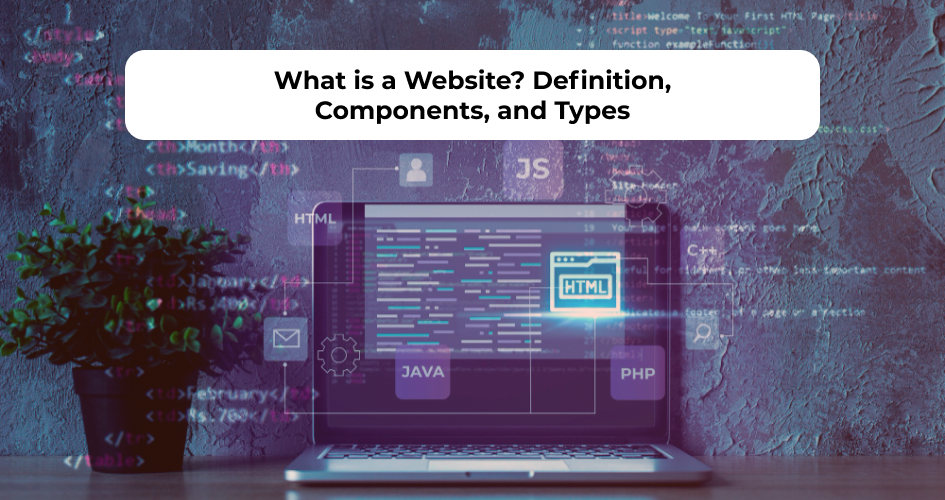Choosing the right web development agency is a crucial decision that can significantly impact the success of your project.
Failing to do so, and you risk blowing your budget for a company that delivers subpar results.
But with so many options in the market, how do you pick a web development firm that aligns with your vision and budget?
Worry not, this article will lay out every important factor a good web development company should have.
By the end, you’ll know exactly what to look for in a web developer.
Steps to Take Before Hiring a Website Developer
Before choosing a web development team, first you’ll need to know what type of project you’ll create.
Do you want to develop an e-commerce website to sell your products?
Perhaps you’re looking to create an automation web app for your enterprise?
Knowing what you need will help you find a company with the right expertise.
Once you’ve figured that out, clearly outline your project details:
- Objectives: Identify the primary purpose of your website or web application, whether it’s to generate leads, share content, or boost team productivity.
- Main features: List the specific functions and features you need. For instance, if it’s an e-commerce site, you might need shopping cart functionality, secure payment gateways, and inventory management.
- Target audience: Define the demographics, preferences, and behaviors of your ideal audience. This information will influence design elements and user experience.
- Design preferences: Specify the visual aesthetics, color schemes, and overall look and feel that align with your brand identity and appeal to your target audience.
- Technology requirements: Whether it’s a content management system (CMS) like WordPress, a specific programming language, or a framework, make your technology preferences clear.
- Scalability: Outline your expectations for future growth and any scalability requirements, especially if you plan to expand or add new features over time.
- SEO requirements: If you want your site to rank high on search engine results pages (SERPs), ask the developer to ensure fast loading times and include features like SEO-friendly URLs, metadata optimization, and sitemap generation.
- Budget constraints: Clearly define your budget constraints. This way, the development company will understand the scope of work within your financial limitations and avoid potential misunderstandings later.
- Timeline expectations: Whether you have a specific launch date or prefer a phased development approach, communicate these expectations to the development team.
- Compliance and security: If your project involves handling sensitive data or needs to comply with specific regulations, make sure to communicate the necessary security and compliance requirements.
What to Look for in a Website Development Agency?
After you have a clear goal and project details, here are factors that you need to look for in a web development company:
1. Relevant Portfolio
When examining the agency’s portfolio, look for diversity in projects, industries served, and examples of work similar to your project.
Industry-specific knowledge can be advantageous, as the agency will better understand your target audience and unique challenges better.
Also, make sure the agency consistently meets deadlines. In case there was a delay, there should be a clear explanation of why it happened.
2. Client Reviews and Testimonials
Client reviews and testimonials help you evaluate the credibility and reputation of a web development agency.
They provide valuable insights into the agency’s performance, client satisfaction, and overall work quality.
Here’s how you can find client reviews:
- The agency’s site: Explore the agency’s official website for a dedicated testimonial section. However, be aware that these testimonials are curated, so consider them alongside other reviews.
- Review platforms: Check third-party review websites such as Clutch, GoodFirms, Trustpilot, and Google Reviews. Testimonials on independent platforms are less likely to be biased, offering a more objective view of the agency’s performance.
- Social media: Look for comments on the agency’s social media profiles, such as LinkedIn, Facebook, and X (formerly Twitter). Pay attention to how the agency responds to those comments, especially negative ones.
- Relevant forums: Visit industry-specific forums where people talk about web development. They often feature candid discussions and detailed experiences shared by actual clients.
- Networking events: Attend web development conferences and networking events to connect with businesses that have worked with the agency. Face-to-face interactions can provide deeper insights into client experiences.
- Word of mouth: Reach out to your professional network and inquire if anyone has worked with the agency. This way, you can get firsthand insights into the agency’s performance.
- Client references: You can also request the agency to provide references from past clients. Speaking directly with previous clients allows you to ask specific questions about their experience and the agency’s performance.
3. Technological Expertise
Another factor to consider is the agency’s technical skills and knowledge.
Up-to-date technological expertise ensures your website is built using current standards, resulting in better performance and security.
Depending on your website’s type, ask about their proficiency in these tools:
- Web development frameworks: React.js, Angular, or Vue.js for frontend development, and Node.js, Django, Ruby on Rails, or Laravel for backend development.
- Programming languages: JavaScript, HTML, CSS, Python, Ruby, or PHP
- Content management systems (CMS): WordPress, Drupal, or Joomla.
- E-commerce platforms: Shopify, Magento, or WooCommerce.
- Database Management: MySQL, PostgreSQL, MongoDB, or others, depending on your data storage needs.
It’s equally important to discuss their approach to website security and protection against common vulnerabilities.
Do they implement HTTPS, data encryption, and two-factor authentication?
Also, ask how the developer optimizes website performance, including techniques like code minification, image optimization, and server-side optimizations.
4. Communication and Transparency
Next, evaluate the agency’s communication style.
Clear communication ensures a smooth collaboration, and transparency builds trust throughout the development process.
When selecting your development partner, make sure they have:
- Project management tools: Platforms like Jira, Trello, or Asana help you stay informed about the project’s status, milestones achieved, and any potential challenges or changes.
- Regular updates: Check whether you’ll get timely updates and transparent progress reports on every stage of the development process.
- Feedback-driven culture: When your development team values input from all stakeholders, they can identify and solve potential bottlenecks early.
- Clear documentation protocols: All the important decisions and changes should be recorded systematically. A well-maintained documentation significantly reduces the risk of misunderstandings.
- Communication platforms: Use messaging tools like Slack and Microsoft Teams to host group calls or one-on-one sessions. This is crucial to keep everyone on the same page.
5. Budget Alignment
Whether it’s a fixed-price model, hourly rates, or milestone-based payments, transparency in pricing is essential.
A clear breakdown of web development costs helps you prepare your budget upfront and avoid paying hidden costs.
You can reach out to several web development agencies, and request a custom quote.
Once you’ve received multiple proforma invoices, compare them and choose one that aligns with your budget.
But remember, always choose quality over cheaper but poor services. If you need to spend a few extra bucks for top-notch results, why not?
6. Cultural Fit
Building the right web development team goes beyond just technical abilities and tangible KPIs.
To ensure a great, long-term working relationship, you need to make sure the agency can work hand-in-hand with your in-house team.
A developer who aligns with your company’s values and mission is more likely to understand and support your overall objectives.
This ensures that the website they build resonates with your brand identity and goals.
Not sure where to begin? Simply follow this checklist:
- Schedule meetings or interviews with key team members from the agency. Engage in open conversations to gauge their communication style, values, and approach to work.
- If possible, attend events, webinars, or workshops where their team members participate. This can provide a glimpse into their working relationships and overall atmosphere.
- Connect with former employees of the agency. Their perspectives can provide insights into the company culture, leadership style, and overall work environment.
- Propose a trial project before committing to a long-term partnership. This allows you to assess firsthand how the agency collaborates, communicates, and integrates with your in-house team.
7. Support and Maintenance
After development, a good agency usually offers on-going support to keep your site or app running smoothly.
The specific services provided may vary among agencies, but common offerings include:
- Bug fixes resolve any errors or issues that may arise after the website is live.
- Security patches address security vulnerabilities and protect your website from potential threats.
- Software and plugin updates keep all software components, including content management systems (CMS) and plugins, up-to-date.
- Database management ensures efficient data storage, retrieval, and issue resolution.
- Continuous monitoring of website performance to enhance speed, responsiveness, and overall user experience.
- Regular backups of website data to prevent data loss, along with a well-defined disaster recovery plan to quickly restore the site in case of unforeseen events.
- 24/7 customer support either through a ticketing system, email, live chat, or other communication channels.
Conclusion
By now, you should have a better idea on how to choose the right web development firm.
Still not sure where to find one?
No worries. Intelivita is here to help you build your dream web application or website.
With over 12 years of experience and 60+ projects successfully delivered, we know the ins and outs of web development like no other.
Let’s talk to our experts, and take the first step forward.





